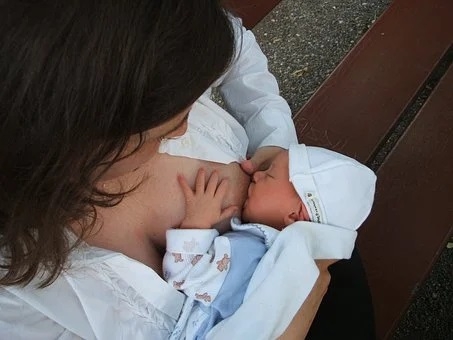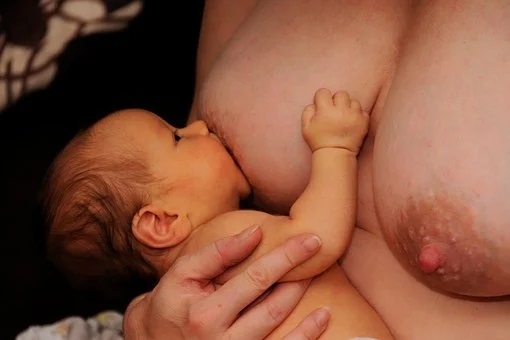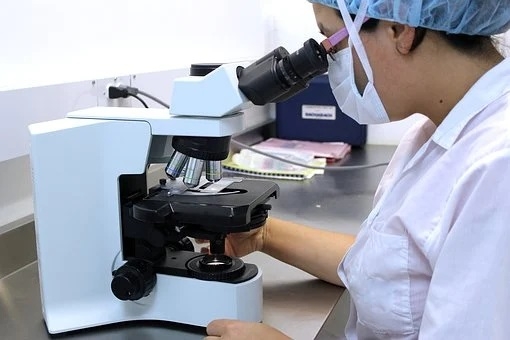Is Breast REALLY Best?
February 14th, 2022
1831 Views

Breast milk is said to be the very best start you can give your baby because it will make your baby healthier, more contented and smarter. Breast milk will also give your baby valuable protection against illness and disease. Many mothers do breast feed and find it quick, convenient and very bonding. Other mums though, find the whole struggle of trying to breast feed stressful, painful and demoralising. It seems socially unacceptable not to breast feed your baby – even if you are unable to or choose not to breast feed…..
The subject of breast versus bottle is still one of the most discussed parenting topics – and a very emotional one. There are lively debates on parenting blogs and forums and three years ago, the President of the National Childbirth Trust (NCT) left because she felt the NCT was giving too much support to mothers who did not exclusively breastfeed. She felt that by supporting all mothers, whether they breast fed or bottle fed, diluted the message that ‘breast is best’ – especially as the UK has a relatively low breastfeeding rate -
‘81% of mums in the UK tried to breastfeed their newborns at birth, by the end of the first week over half of those babies had some degree of formula. Across the UK, at 3 months the number of mothers breastfeeding exclusively was 17% and at 4 months, it dropped further to 12%. Exclusive breastfeeding at six months (recommended by the WHO) remained at 1%’.
Latchaid.com
It seems that in the UK only 1 in 200 women do any breastfeeding after the first year – that’s about 0.5% which is a very low figure. 23% of women in Germany are still breastfeeding after a year and in the United States, this figure is 27%. There are numerous reasons why breast feeding does not work for some mothers. Some babies will not latch on to feed or it is too painful if the mum has mastitis. Some babies have tongue-tie and some mums do not produce enough or poor quality milk. There are also babies that are ill and need to be tube fed. Of course, mothers may choose not to breast feed or need to return to work.
So, putting social stigma to one side, the big questions ‘Is breast really best?’
The subject of breast versus bottle is still one of the most discussed parenting topics – and a very emotional one. There are lively debates on parenting blogs and forums and three years ago, the President of the National Childbirth Trust (NCT) left because she felt the NCT was giving too much support to mothers who did not exclusively breastfeed. She felt that by supporting all mothers, whether they breast fed or bottle fed, diluted the message that ‘breast is best’ – especially as the UK has a relatively low breastfeeding rate -
‘81% of mums in the UK tried to breastfeed their newborns at birth, by the end of the first week over half of those babies had some degree of formula. Across the UK, at 3 months the number of mothers breastfeeding exclusively was 17% and at 4 months, it dropped further to 12%. Exclusive breastfeeding at six months (recommended by the WHO) remained at 1%’.
Latchaid.com
It seems that in the UK only 1 in 200 women do any breastfeeding after the first year – that’s about 0.5% which is a very low figure. 23% of women in Germany are still breastfeeding after a year and in the United States, this figure is 27%. There are numerous reasons why breast feeding does not work for some mothers. Some babies will not latch on to feed or it is too painful if the mum has mastitis. Some babies have tongue-tie and some mums do not produce enough or poor quality milk. There are also babies that are ill and need to be tube fed. Of course, mothers may choose not to breast feed or need to return to work.
So, putting social stigma to one side, the big questions ‘Is breast really best?’

Good for your baby’s digestion
Breast fed babies have improved digestion during their first year of life and this is particularly important if your baby was born prematurely. Breast milk provides the ideal nutrition for your baby, in the most easily digestible form. Consequently, breast fed babies are less likely to suffer from allergies and rashes.Protecting your baby’s health
Breast fed babies receive antibodies in their mother’s milk and these help to strengthen the baby’s immune system. This is important as a strong immune system helps to lower the baby's chance of illness – including fewer ear infections. Studies have found that breast fed babies are also less likely to be hospitalised.Breast milk has strong immunological properties that it can be used to effectively treat nappy rash, eczema and rashes on your baby and mum’s dry and cracked nipples. Breast milk also soothes burns and grazed skin.
Importantly, breast feeding your baby will protect you against cancer.
Your baby will have a higher IQ
In 2006, the British Medical Journal (BMJ) published a paper following its study of 5,000 children aged 5-14 years. In their initial study they found that across the board, breast fed babies scored on average four points higher in the IQ assessments than bottle fed children. This confirmed similar findings made in other studies.The BMJ then took the study a stage further and looked at the mums’ IQ and standard of education and cross-checked breast fed and bottle fed children whose mothers had similar educational backgrounds. Interestingly, a difference was still recorded, with the breast fed children scoring an average of 1.6 points more in the IQ tests.
The third phase of the study was to compare the IQs of siblings with the same mother, where one child had been breast fed and the other bottle fed. Interestingly, the difference in scores was negligible as both children had similar IQ scores.

Could this be the way forward?
In 2010 when Leila Strickland was just completing her post-doctorate fellowship in cell biology at Stanford University, she had her first child. She found to her surprise and disappointment that she was unable to successfully breast feed her son. After battling to breastfeed she turned to formula milk, but admits that she was not happy to do -‘I was making a trade-off. I knew the product my child was getting was optimal for raising cows, that it didn’t have the ideal nutrient composition. It was good enough – but what mom is happy with good enough?"
The Guardian newspaper
Using her experiences as a mother and her skills as a cell biologist she has since devised a way to create breast milk in a laboratory. Her start up company 'Biomilq' has been successful and in October 2021 she received a £2.7 million cash injection from Bill Gates. The home page of the company website states - ‘We are women-owned, science-led and mother-centred’. This new type of baby milk could mark the end of baby milk formula as we know it as it combines all the advantages of breast milk in a laboratory produced milk for bottle-fed babies.
● www.biomilq.com/
Should the focus be more on well- nourished babies?
While the lively debate about breast versus bottle continues, there is a group of campaigners including doctors and researchers who feel that the focus on breast being best is misplaced -‘They argue that if a new mum struggles to breastfeed, pressure to persevere can lead to intolerable strain. What’s more, some women are physically unable to make enough milk and if this goes unnoticed their babies can get dehydrated, occasionally even to the point of brain damage. The biggest concern, they argue, should not be whether the baby is given breast milk or formula, but whether they are getting enough nutrition full stop. In other words, "fed is best"…...
●(www.bbc.com/future/article/20170503-are-there-downsides-to-breast-is-best )
Food for thought indeed…..
Chrissie x

